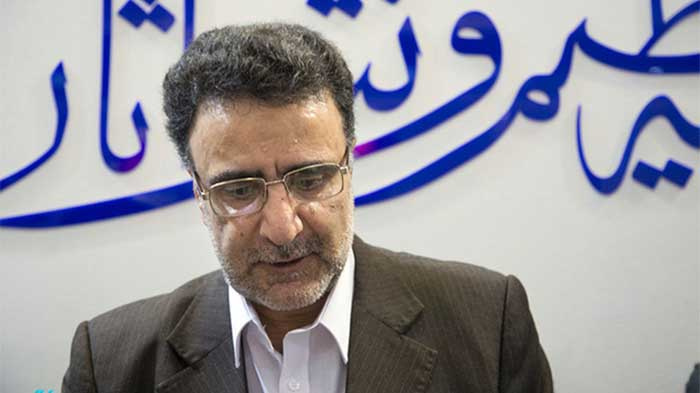Reformist Tajzadeh Discusses Dos and Don’ts of Presidential Debates

Election debates have turned into the main platform for presidential campaigns: confrontation between the Principlists and the Reformists peaked in the second debate and for the three Principlist candidates, Qalibaf, Raisi and Mirsalim, harsh criticism against the sitting administration is on the agenda. But who will be the real winner of the debates?
In an interview with moderate website Fararu, Mostafa Tajzadeh evaluated the Principlists’ strategy during the second televised debate. “In both the first and the second debates, the Principlist candidates undertook to criticize the administration to the point of demolition. Instead of seizing the opportunity to elaborate on their plans for each area, they only undermined the administration,” he said.
“Debates are an opportunity for the candidates to explain how they are going to realize their promises. For instance, it was worthwhile if Raisi and Qalibaf in particular would put forward their solutions for tripling the cash handouts and the monthly payment of 250,000 tomans ($65) to the jobless,” Tajzadeh added. Saying the two candidates’ background does not indicate faith in freedom of information, Tajzadeh said the two should have express their views on cultural, political, and international issues as well as ways to terminate corruption.
“If, instead of showing pamphlets and repeating their vows, they chose to answer certain questions during the debates and other televised programs, it would become clear how fantastical or realistic are the vows,” Tajzadeh said in response to a question about promises made by the candidates.
As an example, Tajzadeh said public opinion would ask Qalibaf how he stated in 2008 that the country could not be administered by oil prices under $70 bpd, potentially causing difficulties in supply of basic needs but promises today to triple cash handouts and pay 250,000 tomans to the unemployed, whereas oil prices are barely $50.
The pro-reform activist stressed the significance of debates for non-president or new coming candidates, saying they find an opportunity to present themselves and then criticize the incumbent administration, while the sitting president who is running for reelection has already relayed his message to the public.
“A candidate wins the election who speaks in a positively compelling manner, rather than in a language of negation. This is true both for the sitting president and for other candidates,” he added.
Tajzadeh went on to say that people might be pleased to hear the candidates’ criticisms against each other and be informed about shortcomings, corruptions, and flaw, but an absolute majority are looking ahead, as the future is more important to them.
“The past matters for people, but the future is determining. Thus, the people regard the candidates’ plan and prospects they picture for the future as significant. They care if a candidate increases or reduces international tension against us, where he brings the shadow of war or throws in away.”
He said the people want to know if a candidate adopts narrow-mindedness, legal and illegal restrictions and how his plans would affect their private lives as citizens. He further noted the importance of the presidential agendas in economy, as people want to see if a candidate could bring a predictable economy or one with uncertainty or tensions.
“Iranians want to know which concept of Islam a candidate would represent: a rational, compassionate side in line with the demands of the masses or an authoritarian Islam. These are issues based on which the people will choose the next president,” he added.
Tajzadeh hailed the importance of the third presidential debate, saying candidates who continue to criticize others and decline to present their plans in a brief, useful, and convincing manner, would lose his chances to win.
* This article above is a summarized version of an interview originally published in Fararu.

